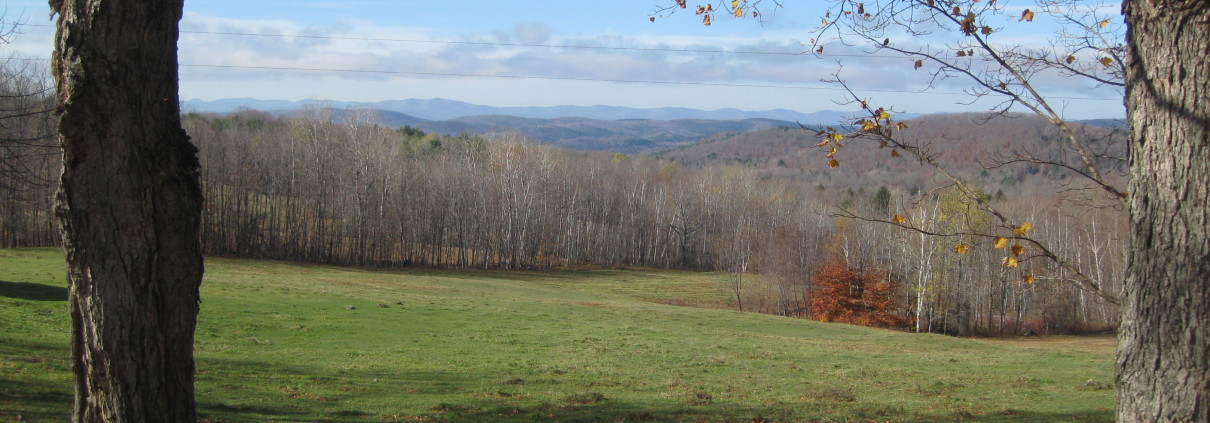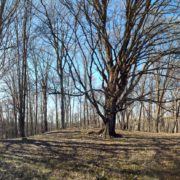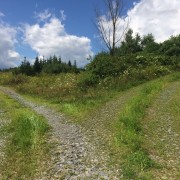A Long View in Tunbridge
The Dodge Farm,  a 274-acre classic hill farm in Tunbridge and Strafford, was owned by members of the Dodge family for almost 100 years, before it went on the market in late 2013. Until the late 1960’s it was a small dairy farm. Some of the open land continued to be used by neighbors for pasture and hay, while other portions grew up in hardwoods and white pine. Area residents frequented trails and woods roads that provided access to a high point in a field opening that provides sweeping views to the both the Green Mountains in Vermont and the White Mountains in New Hampshire.  This site, is known locally as “Tuttle Rock†or “White Rock†for the stone set in place there. When the land went up for sale, this popular place was at risk.
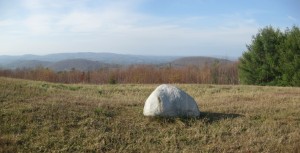
As they signed the conservation easement deed, Carin said she felt a sense of relief to know that the land would always be conserved.
Thankfully, John Echeverria and Carin Pratt, of Strafford, purchased the Dodge Farm in August of 2015, with the intention of conserving its  mature forests, productive open fields, and the breathtaking views long enjoyed by so many. They recently donated a conservation easement protecting the entire farm except for  5.5 acres that  contains the residence, barn, outbuilding, and man-made pond. The protected property also has frontage along two “Legal Trails†that are reclassified Class IV town highways each with an existing public right-of-way.
The land is located directly to the south of the UVLT-conserved Hidden Valley Orchard, and shares its eastern boundary with the Kibling Hill Wildlife Management Area.  The upland forested area of the Protected Property is located within a 5,400± acre, highly ranked forested Habitat Block as identified by the Vermont Agency of Natural Resources. Forester Paul Harwood has helped John and Carin develop a sustainable forest management plan for the property. Timber stand thinning and improvement will begin this winter, using a team of horses when the ground is frozen.
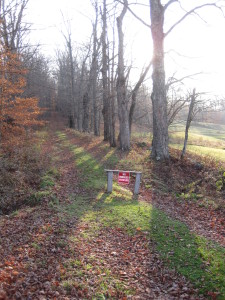
The property contains trails used by hikers and horseback riders. Vehicles are not permitted.
In addition to the two town trails,  snowmobile trails that are part of the statewide VAST system travel through the Protected Property using farm roads, fields, and trails  during the winter months and there is also significant recreational enjoyment of roads and trails  by hikers and horseback riders.  John and Carin expect to continue permitting these seasonal uses, as this aspect of the property is, in part, what attracted them to buy it. The conservation easement prohibits vehicular recreational access.
Legal and transaction expenses associated with the gift were partially underwritten by a grant from the Taylor Valley Conservation Project, a local group raising funds and working with landowners to facilitate the conservation of land through easement donations.

